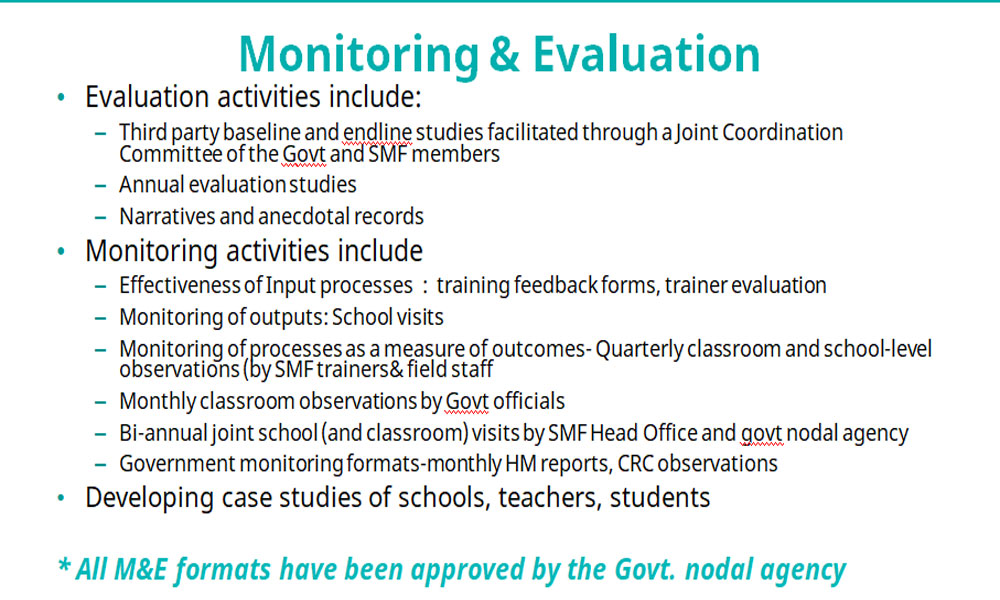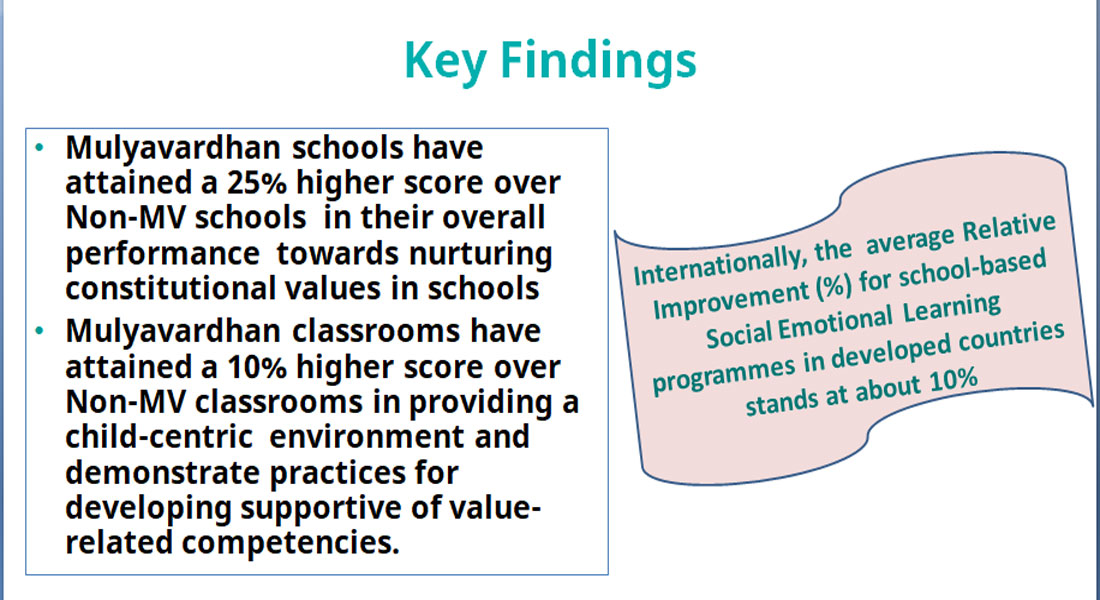Mulyavardhan uses a whole-school approach, whereby the entire school ethos and all school processes are guided by core democratic values. What this means for students is that the school environment is safe, inclusive and supportive and actively challenges any form of violence or discrimination.
This also means that any rules or policies formed to create an environment like this are created in a participatory manner and communicated to all stakeholders. MV approaches this critical task with a multifaceted approach and to help schools envision and plan
this, the Programme has a Framework for Assessment of School Value Practices. Reach out to us to know more.

School wide activities are done to nurture a sense of camaraderie and fraternity amongst the students. While they offer students a chance to demonstrate leadership and creativity, they also strengthen school and community relationships. Guidelines for planning and organizing school-level activities are provided in a guidebook for headmasters/school principals.
Connection with academic learning outcomes: MV in alignment with the RTE mandate of ‘learning through activities’ helps build an environment in school which promotes the use of pedagogy that encourages students to ‘construct’ their own learning. This promotes the development of autonomy and working in groups fosters empathy and cooperation. Teachers are encouraged and supported to use this pedagogy across academic teaching especially in languages and social studies.To promote the effective use of all these practices MV provides capacity building support and guidebooks. Additional support to schedule these activities and contextualize them is also provided to the schools.
Mulyavardhan's whole-school approach is given a specific direction through certain educational practices that are meant to improve student teacher relationships, promote a feeling of oneness and provide frequent opportunities to achieve learning outcomes. These have been designed to be contextual, seamlessly meld into the curriculum and fit into the regular time table of the school.
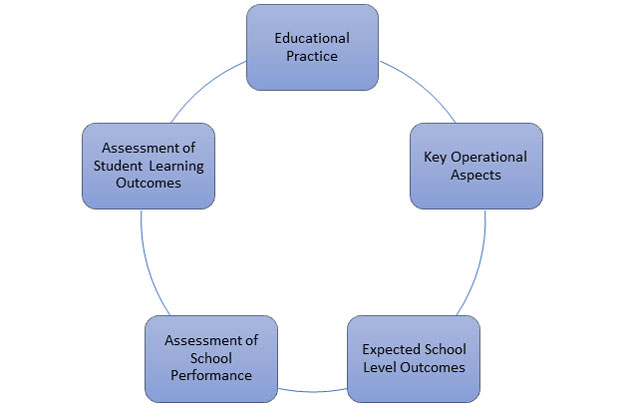
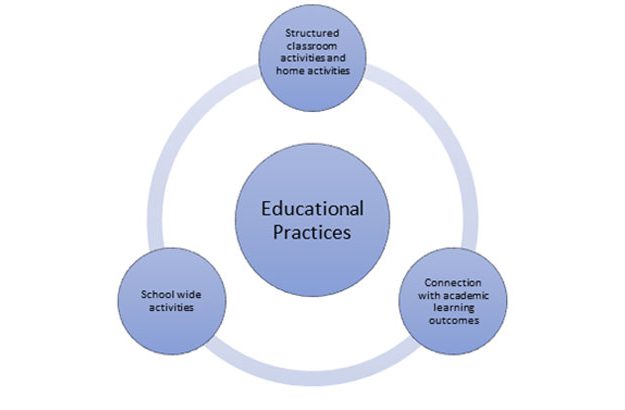
Structured classroom activities will involve students directly in behavioural exercises or practice of social-cognitive skills, followed by facilitated discussion on what they have learned. These activities are contextual, learner centric and accessible for all students. These activities take less than 5% of total school hours in the year and involve cooperative-learning structures and open-ended questioning by using content like stories, incident-descriptions, skits, songs, poems, pictures and games.
School wide activities are done to nurture a sense of camaraderie and fraternity amongst the students. While they offer students a chance to demonstrate leadership and creativity, they also strengthen school and community relationships. Guidelines for planning and organizing school-level activities are provided in a guidebook for headmasters/school principals.
Connection with academic learning outcomes: MV in alignment with the RTE mandate of ‘learning through activities’ helps build an environment in school which promotes the use of pedagogy that encourages students to ‘construct’ their own learning. This promotes the development of autonomy and working in groups fosters empathy and cooperation. Teachers are encouraged and supported to use this pedagogy across academic teaching especially in languages and social studies.To promote the effective use of all these practices MV provides capacity building support and guidebooks. Additional support to schedule these activities and contextualize them is also provided to the schools.
While engaging with one or more schools, MV involves the following operational aspects:
Dedicated school time for activities: While the MV activities fit in the time table, the school needs to set aside time each week for these as well as identify teachers who will conduct these activities. Teachers are trained and offered teacher guidebooks and other support.
Review of existing school practices: To nurture a democratic school environment, the school’s existing practices especially with regard to school rules, decision making process and organization of school wide activities need to be reviewed and appropriate changes need to be made.
Organization of appropriate school wide activities: The activities appropriate and relevant to the context of the school such as annual day, assembly, student forums need to be organized.
The Programme is expected to trigger and catalyze a process of change in school, leading to the following outcomes:
• Schools demonstrate value-based governance.
• Schools provide a safe, caring and child-centric school environment that encourages all students to learn without stress, fear or anxiety.
• Schools provide varied opportunities and experiences for students to develop democratic
values/attitudes and related competencies.
• Schools establish practices to maintain constructive relations with and to involve all stakeholders in the all-round development of students.
Operational Strategy
SMF works in collaboration with the state government and has support me-chanisms at each step from teachers in schools to SCERT resource groups.The framework and curriculum are also regularly reviewed by govt. experts and teachers.
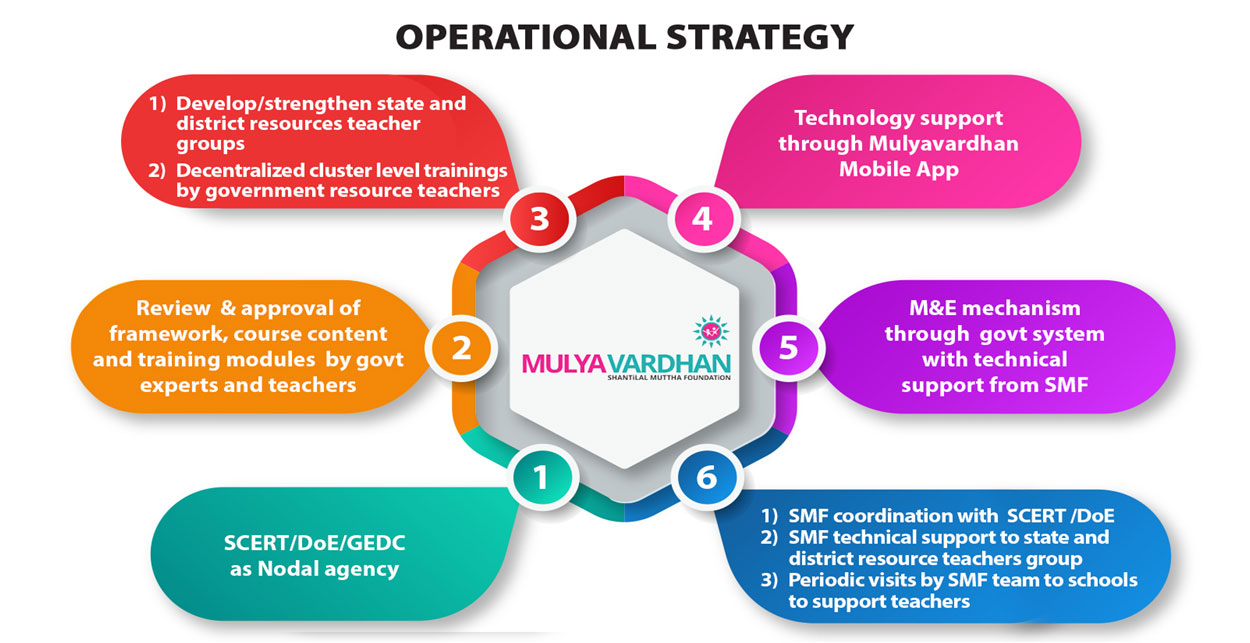
SMF is committed to supporting schools in implementing the Mulyavardhan program effectively by supporting them at every step of the way. The SMF model for school support has 4 key aspects to it.
SMF engages with the school in 3 phases
- Pre-intervention (about 3 months) – building buy-in of key decision makers
- During Intervention (12-36 months) – investing stakeholders, capacity building, baseline endline assessments etc.
- Post-Intervention – discussing challenges faced, ensuring sustainability

For effective implementation of Mulyavardhan, SMF offers capacity-building support to adult stakeholders like master trainers, school teachers, headmasters and education officials. The support is provided in two ways:
• Through workshops of 1-5 days.
• Through on-site and/or off-site support.
• Through the Mulyavardhan App
A variety of support materials is given through the capacity-building workshops, such as:
• Mulyavardhan brochure.
• Guidebook for HMs with templates for reflection, planning and performance review
• Grade-wise activity books for teachers for planning class activities
• Guidebook for teachers
• Grade-wise activity books for students
SMF is willing to offer implementation support to state governments and private school bodies that are interested in rolling out Mulyavardhan on a large scale. While the scope and terms of support will vary according to needs and resources, the range of possible support includes:
• Programme planning.
• Programme monitoring.
• Programme evaluation.
Key To Abbreviations
| 1] | SMF | Shantilal Muttha Foundation |
| 2] | MV | Mulyavardhan |
| 3] | MoU | Memorandum of Understanding |
| 4] | MV-GoM | Mulyavardhan - Govt. of Maharashtra |
| 5] | Goa MV-GoG | Mulyavardhan - Govt. Of Goa |
| 6] | MV-VB | Mulyavardhan - Vidya Bharti |
| 7] | MV-ECE | Mulyavardhan - Civic Engagement |
| 8] | MV-ABE | Mulyavardhan-Archdiocesan Board of Education |
| 9] | ZP | Zilla Parishad |
| 10] | RTE | Right to Education |
| 11] | NCF | National Curriculum Framework |
| 12] | NCERT | National Council for Educational Research and Training |
| 13] | SCERT | State Council for Educational Research and Training |
| 14] | CCE | Continuous and Comprehensive Evaluation |
| 15] | LO | Learning Outcome |
| 16] | DoE | Department of Education |
| 17] | RTGs | Resource Teacher Groups |
| 18] | GEDC | Goa Education Development Corporation |

